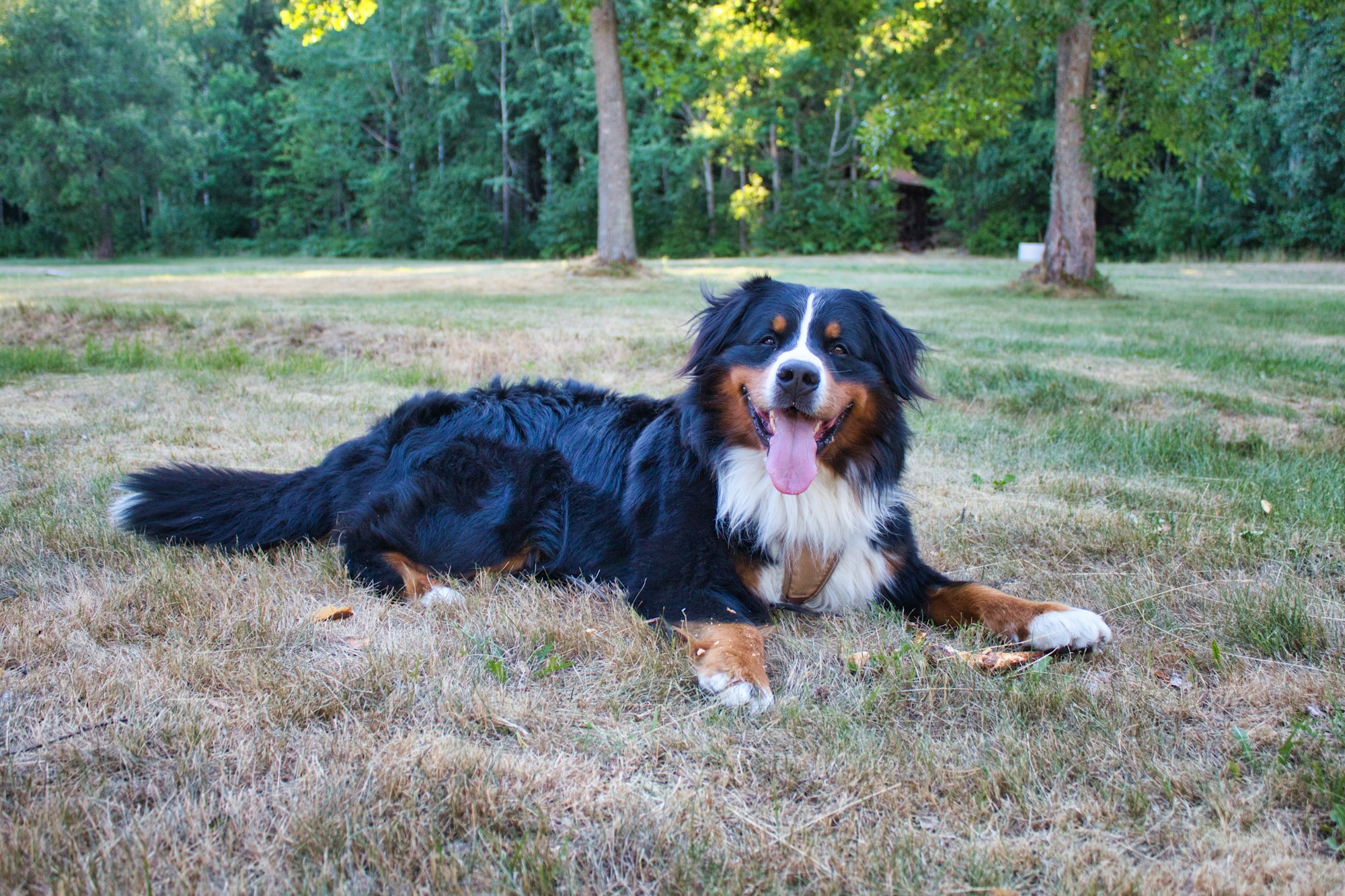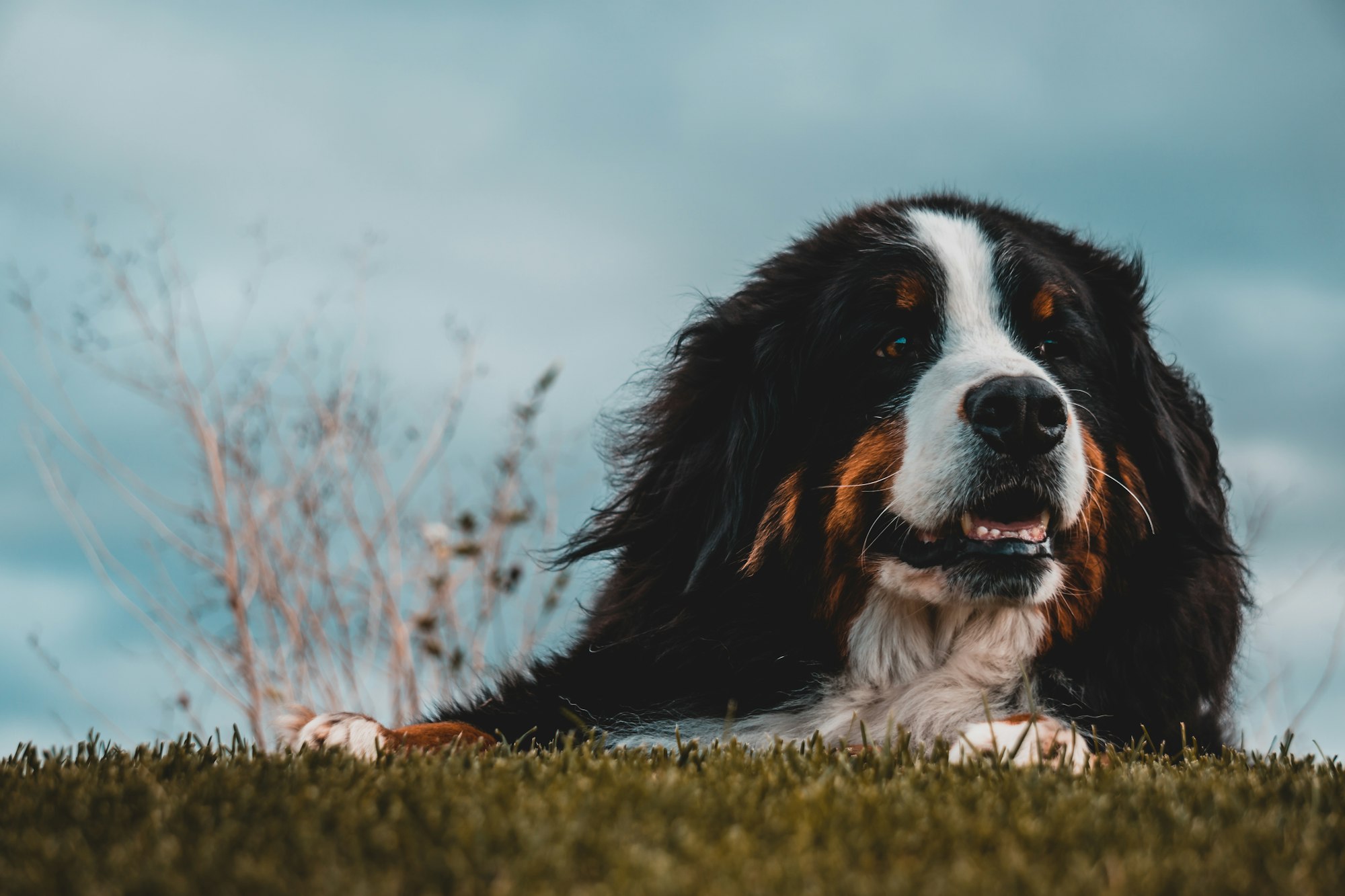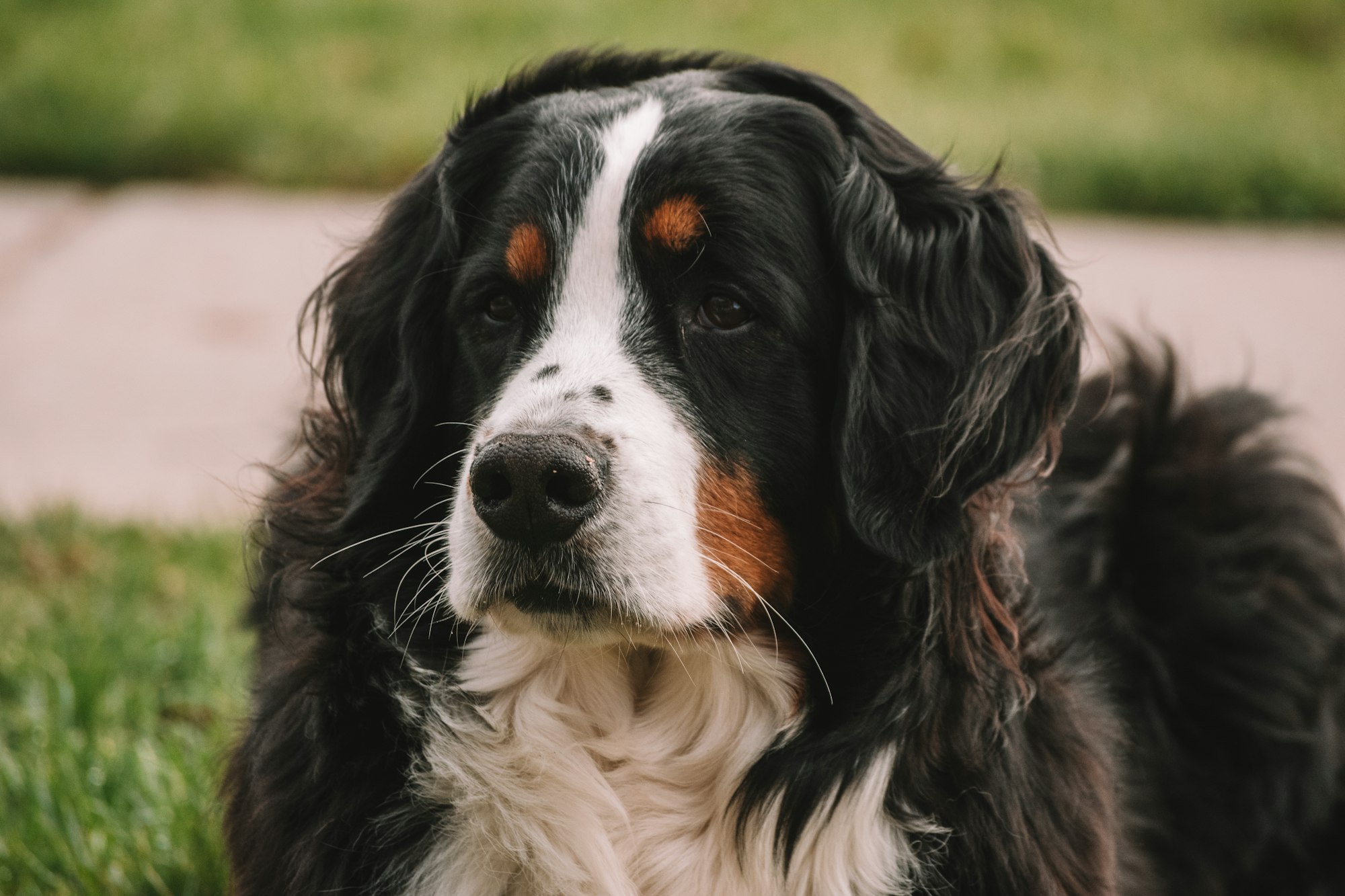If you're a pet parent to a beautiful Bernese Mountain Dog, you already know how special this breed is. But did you know that with proper care, you can significantly extend your beloved Berner's lifespan?
In this article, we'll discuss Berner Longevity and provide tips on how you can help your furry friend live a longer, healthier life.
Bernese Mountain Dog: A Brief Overview
To understand how to extend your Berner's lifespan, it's essential to know a little more about this fantastic breed.
Originating from Switzerland, Bernese Mountain Dogs were bred to be versatile working dogs, particularly in farming environments. These large, sturdy dogs are well-known for their striking tricolor coat and gentle, loving temperament.
Though they can be quite large, they make wonderful family pets, as they're generally good with children and other animals. Unfortunately, Bernese Mountain Dogs tend to have a shorter lifespan than many other breeds, averaging around 7 to 10 years.
The good news is that with proper care, you can help your Berner live a longer, healthier life.

The Key to Berner Longevity: Health and Wellness
To ensure Berner longevity, the focus should be on maintaining your dog's overall health and wellness.
Always make sure to keep track of your pup, especially during training. You can use a Fi Smart Dog Collar to watch their location and keep track of daily exercise.
A few crucial factors contribute to a longer lifespan for your Bernese Mountain Dog:
- Regular veterinary care
- A balanced diet
- Exercise and mental stimulation
- Weight management
- Preventing common health issues
Let's delve deeper into each of these aspects.
Regular Veterinary Care
Establishing a relationship with a trusted veterinarian is critical for your Berner's health. Routine check-ups, vaccinations, and preventive care are essential to detect and address potential health issues early on.
As your Bernese Mountain Dog ages, more frequent visits to the vet may be necessary to monitor their health and adjust their care accordingly.
A Balanced Diet
Feeding your Berner a high-quality, balanced diet plays a significant role in their overall health and longevity.
Consult with your veterinarian to determine the best food for your Bernese Mountain Dog, taking into account their age, weight, activity level, and any specific dietary needs or restrictions.
Avoid overfeeding and be mindful of treats and table scraps, as excessive weight gain can lead to numerous health issues.
Exercise and Mental Stimulation
Bernese Mountain Dogs were bred to work, so they require regular physical activity and mental stimulation. A daily walk or play sessions will help maintain their physical fitness and prevent boredom, which can lead to destructive behaviors.
Remember to adjust the intensity and duration of exercise based on your Berner's age and overall health.
Mental stimulation is equally important, so consider providing puzzle toys, interactive games, or engaging in flirt pole training sessions to keep your Berner's mind sharp.

Weight Management
Maintaining a healthy weight is crucial for Berner's longevity. Obesity can lead to several health issues, including joint problems, heart disease, and diabetes. Ensure your Bernese Mountain Dog is receiving adequate exercise and monitor their food intake to keep their weight in check.
Consult with your veterinarian to determine the ideal weight for your Berner and adjust their diet and exercise routine accordingly.
Preventing Common Health Issues
Bernese Mountain Dogs are prone to certain health issues, including hip and elbow dysplasia, cancer, and heart problems. Being aware of these potential health concerns and taking preventive measures can significantly impact your Berner's lifespan.
For example, providing joint supplements and avoiding excessive high-impact activities can help prevent or manage joint issues like hip and elbow dysplasia. Additionally, regular veterinary screenings and monitoring for any signs of illness can help identify and address health concerns before they become severe.
Establishing a Safe and Loving Environment
Another important aspect of Berner Longevity is providing a safe, comfortable, and loving environment for your Bernese Mountain Dog.
Here are some tips to ensure your Berner feels secure and happy at home:
- Create a designated space for your Berner, complete with a comfortable bed, toys, and fresh water.
- Offer a consistent daily routine, including regular feeding times, exercise, and bonding activities.
- Socialize your Berner with other dogs, people, and environments to build their confidence and reduce anxiety.
- Use positive reinforcement training techniques to establish a strong bond and encourage good behavior.
The Power of Love and Companionship
Never underestimate the power of love and companionship in extending your Bernese Mountain Dog's lifespan.
As social creatures, Berners thrive on human interaction and the strong bonds they form with their families.
Show your Berner love, affection, and attention to help them feel secure, happy, and less stressed, which can positively impact their overall health and longevity.

Summing It Up: Keys to Berner Longevity
In conclusion, Berner's Longevity is achievable through a combination of proper healthcare, diet, exercise, weight management, preventive measures, a safe and loving environment, and a strong human-animal bond.
By implementing these strategies, you can help your beloved Bernese Mountain Dog enjoy a longer, healthier, and happier life by your side.
Remember, Berner Longevity is not just about the number of years; it's also about the quality of life you provide for your furry friend. Take the time and effort to ensure your Berner's well-being, and you'll be rewarded with the joy and unconditional love that only a Bernese Mountain Dog can offer.
With proper care and attention, you can look forward to many wonderful years together with your beloved Berner. So, go ahead and make the most of the time you have with your four-legged family member – every extra day is a gift worth cherishing.
The Importance of Grooming and Skin Care
Regular grooming and skincare are often overlooked aspects of Berner Longevity. Bernese Mountain Dogs have a thick, double coat that requires consistent maintenance to prevent matting, skin irritation, and infections.
Establishing a regular grooming routine at home will not only help your Berner look and feel their best, but it can also contribute to their overall health and well-being. Here are some grooming tips for your Bernese Mountain Dog:
- Brush your Berner's coat at least once or twice a week to remove loose hair, prevent matting, and distribute natural oils. This will keep their coat healthy and shiny.
- Bathe your Berner as needed, depending on their activity level and exposure to dirt. Use a gentle, dog-friendly shampoo and conditioner to keep their skin and coat moisturized and healthy.
- Regularly check your Berner's ears for signs of infection or irritation, and clean them with a dog-specific ear cleaner as needed.
- Trim your Berner's nails regularly to prevent overgrowth, which can lead to discomfort or injury.
- Keep your Berner's teeth clean by brushing them with dog-specific toothpaste and providing dental chews or toys.
The Role of Genetics in Berner Longevity
It's essential to acknowledge the role genetics play in the overall health and lifespan of your Bernese Mountain Dog. While you can take many proactive measures to promote your Berner's well-being, some health issues may be unavoidable due to their genetic predisposition.
To increase the likelihood of a healthy, long-lived Berner, consider the following when selecting a Bernese Mountain Dog:
- Choose a reputable breeder who conducts thorough health screenings and provides documentation of the dog's lineage.
- Look for breeders who prioritize temperament, health, and longevity in their breeding programs.
- Ask about the health history of the dog's parents and any known issues in their bloodline.
By being aware of your Bernese Mountain Dog's genetic background, you can better understand its health risks and work with your veterinarian to monitor and address any concerns.
Embracing Senior Berner Care
As your Bernese Mountain Dog enters their senior years, their needs and care requirements may change. It's crucial to be prepared for these changes and to adjust your care routine accordingly.
Here are some tips for caring for your senior Berner:
- Schedule more frequent veterinary visits to monitor your Berner's health and make any necessary adjustments to their care.
- Consider providing a joint supplement or a diet specifically designed for senior dogs to support joint health and overall well-being.
- Modify your Berner's exercise routine to accommodate any physical limitations, while still ensuring they remain active and engaged.
- Make your home senior-dog friendly by providing orthopedic beds, non-slip mats, and ramps or stairs to help your Berner navigate their environment comfortably.
By embracing the changes that come with age and adapting your care routine, you can help your senior Bernese Mountain Dog enjoy a comfortable and fulfilling life in their golden years.
Building a Supportive Community
Surrounding yourself and your Bernese Mountain Dog with a supportive community can have a significant impact on Berner's Longevity. Connecting with fellow Berner owners, trainers, and experts can provide invaluable advice, resources, and encouragement throughout your dog's life.
Consider joining local or online Bernese Mountain Dog groups, attending breed-specific events, or participating in training classes to create a network of like-minded individuals who share your passion for Berner Longevity.
Here are some ways to build a supportive community for you and your Berner:
- Attend local dog meetups or breed-specific events to socialize your Berner and learn from fellow Bernese Mountain Dog owners.
- Enroll in training classes to strengthen your bond with your Berner and learn positive reinforcement techniques to improve their behavior and mental stimulation.
- Join online forums, social media groups, or breed-specific clubs to access valuable resources, advice, and support from fellow Bernese Mountain Dog enthusiasts.
- Connect with veterinarians, trainers, and other experts who specialize in Bernese Mountain Dogs to ensure your Berner receives the best possible care.

Alternative and Complementary Therapies for Berner Longevity
In addition to traditional veterinary care, some Bernese Mountain Dog owners may choose to explore alternative or complementary therapies to promote their dog's health and well-being. These therapies may help manage pain, reduce stress, and improve the overall quality of life for your Berner.
Some alternative and complementary therapies to consider for your Bernese Mountain Dog include:
- Acupuncture: This ancient Chinese practice uses thin needles to stimulate specific points on the body, potentially helping to manage pain and promote healing.
- Massage: Canine massage can help to alleviate muscle tension, improve circulation, and provide relaxation for your Berner.
- Hydrotherapy: Water-based exercises can be an excellent low-impact option for Berners with joint or mobility issues, helping to maintain muscle strength and overall fitness.
- Aromatherapy: The use of essential oils can promote relaxation and reduce anxiety in some dogs. However, it's crucial to use dog-safe oils and consult with a professional to ensure proper application and dosage.
Before pursuing any alternative or complementary therapies for your Bernese Mountain Dog, consult with your veterinarian to ensure they're safe and suitable for your dog's specific needs.
Monitoring Changes in Your Berner's Health
As your Bernese Mountain Dog ages, it's crucial to remain vigilant in monitoring changes in its health, behavior, and overall well-being. Keeping track of any changes, no matter how small can help you identify potential health concerns early on and address them before they become severe.
Some signs to look for include:
- Changes in appetite or weight
- Lethargy or decreased energy levels
- Difficulty getting up or moving around
- Unusual lumps, bumps, or skin irritations
- Persistent coughing or breathing difficulties
- Changes in bathroom habits or incontinence
If you notice any changes in your Berner's health or behavior, consult with your veterinarian to determine the cause and appropriate course of action.
In conclusion, promoting Berner Longevity involves a combination of attentive care, regular veterinary check-ups, proper nutrition, exercise, weight management, preventive measures, environmental enrichment, and a strong bond between you and your Bernese Mountain Dog. By investing time and effort into these aspects of your Berner's life, you can help them enjoy a longer, healthier, and happier existence by your side. So, cherish the moments you have with your furry companion, and strive to provide the best life possible for your beloved Berner.
Final Thoughts on Berner's Longevity
Berner Longevity is a multifaceted goal that requires dedication, love, and attention to your Bernese Mountain Dog's physical, mental, and emotional needs. By implementing the strategies outlined in this article and working closely with your veterinarian, you can maximize your Berner's chances of living a long, healthy, and happy life.
Cherish each moment with your Bernese Mountain Dog and celebrate its unique qualities. By doing so, you'll create a lifetime of memories and a bond that lasts far beyond their years.
For more helpful articles about pet-parenting tips, check out the Off Leash blog at TryFi.com.
Want to know more about TryFi.com? The Fi Dog Collar is a GPS tracking collar that not only keeps track of your dog’s location, activity levels, and sleep patterns, but it also alerts you if your dog escapes your backyard. This is the fastest way to find your dog after an escape. Try the Fi Dog Collar today!

